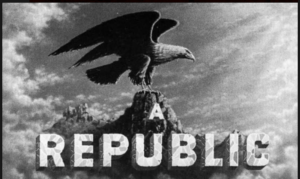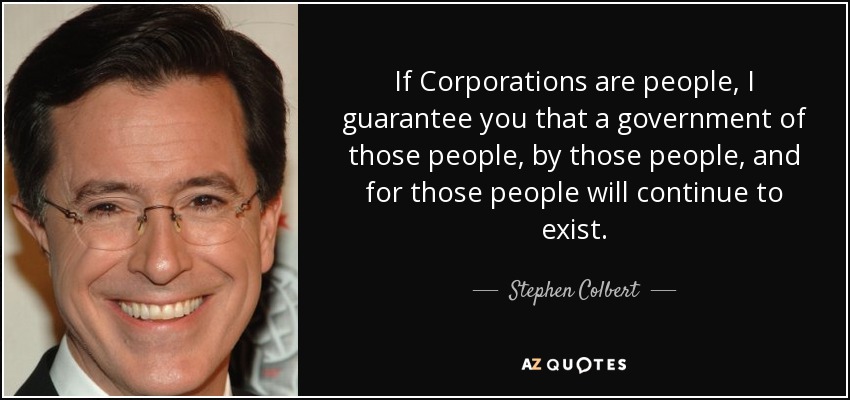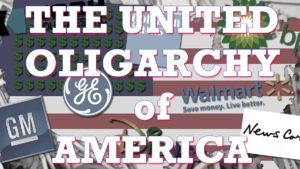As citizens, we owe the United States a renewed commitment to unity as proclaimed in our Declaration of Independence.
“… we mutually pledge to each other our Lives, our Fortunes, and our sacred Honor.”
Okay, I’ll admit that pledge is too big a leap in today’s America!
But are we neglecting the sentiments behind the Declaration? Taking this republic for granted? And choosing to not honor each other? Without an obligation to preserving the idea of being one nation, our republic is definitely facing impending death.
“… with a population once devoted to national service and personal honor, [the republic] was torn to shreds by growing wealth inequality, partisan gridlock, political violence and pandering politicians … the people … chose to let their democracy die by not protecting their political institutions…” — Historian Edward Watts, on the last century of the Roman Republic
Our nation is suffering from our neglect of it — and each other.
Our Chronic Ills Exposed
In the spring of 2020, the country faltered under a viral infection we knew little about. Many people recognized the preexisting conditions contributing to our inability to respond as a functioning commonwealth. Although we heard — “we are all in this together” — we weren’t. Thus, already diseased, our dysfunctional nation couldn’t mount a unified defense against a virus.
“Chronic ills—a corrupt political class, a sclerotic bureaucracy, a heartless economy, a divided and distracted public—had gone untreated for years. [So when this novel virus entered the country], the world’s richest power—[became] a beggar nation in utter chaos.”
Now — if we are willing to restore the health of American democracy — we owe it to our country to not simply treat some symptoms but to understand and cure the heart of the disease process itself.
Diagnosed as Political and Social Division
We know what unity feels like; in recent times, we’ve felt it. It was not created by us, but instead resulted from a wound inflicted by foreign terrorists. In that moment, we all shared a sense of shock and sorrow.
“… on September 11, 2001 … Our civic reflex was to mourn and mobilize together.”
Looking back, our sense of unity was short-lived. But it was long enough for political and greed-driven opportunists to take advantage of the crisis. While we were distracted, they used our lawmakers to further their agendas.
Then in 2008, created by lending instruments of financial destruction, and laws designed to allow these practices, the Great Recession hit. But while many low-wage and middle-class people experienced first-time homelessness, Wall Street gamblers cashed-in and walked away. We — the government paid for by the honest — bailed out those “too big to fail” while still digging out of the financial pit they left us in. We were not ALL in that together!
“Partisan politics and terrible policies … erased the sense of national unity …”
“Inequality—the fundamental, relentless force in American life since the late 1970s—grew worse.”
“The long recovery over the past decade enriched corporations and investors, lulled professionals, and left the working class further behind. The lasting effect of the slump was to increase polarization and to discredit authority, especially government’s.” We Are Living in a Failed State by George Packer, June 2020
In a Vulnerable State
As a federal republic established upon the Rule of Law and a strong central government, it’s our job to ensure laws serve to “secure the Blessings of Liberty to ourselves and our Posterity.” But instead, there is a corrupted ruling-class legally lording over the working-class. That means as much as we all want to believe “all politics is local”, we owe our government a firm resolve to address the sickness that has permeated what Madison saw as the primary position of authority — our Congress.
“… exercise of the different powers of government … [is] … essential to the preservation of liberty … In republican government the legislative authority, necessarily, predominates.” — The Federalist Papers, No. 51, James Madison
If the authority of the legislative branch is to prevail over the governing of our republic, why do we continue to turn a blind eye to what ails it?
What We Couldn’t See Mutated Into Something Else
Based on current global political unrest and research on dead republics, scholars believe when representative governing no long serves ordinary people, populist movements arise. But believing in populism — as acting on behalf of the common people — and actually governing with the people’s needs in mind are two different things. The allure of the concept too often results in violent destruction of a republican form of government with replacement by an authoritarian one.
“Populism is ‘a very complex phenomenon,’ said noted MIT political scientist Richard Samuels …”
“Moreover, Samuels said, the promises of populists during campaigns do not always match the reasons they seek power, making it all the more important to look under the surface of the movement.” 9/16/2019 MIT News, scholars wrestle with the dynamics of a global political trend
We Didn’t See It Coming AND Don’t Understand It !?!
While experts grapple with explaining how populism sounds good but often is disastrous for people and governments, I’m going to take my best shot at explaining how I see things right now.
The rise of populism in the U.S. has all the characteristics of a destructive mass movement.
Emotionally-driven — by frustration, discontent, fear and hatred — yet cultivating within its members — a sense of belonging and power, faith in the future, an “around-the-corner” brand of hope, a willingness to die for the cause — and is directing hatred towards what the leaders define as “evil.”
For example, look at how Charlie Kirk of Turning Point USA talks —about “liberals”, the “Democrat Party” and his movement— on stage at CPAC 2019.
[They,] “do not have good intentions” — “do not mean well” — [in higher education, they teach there is] “no such thing as right and wrong” [AND] “when we as a movement fight, we win.”
Finally Seeing the Danger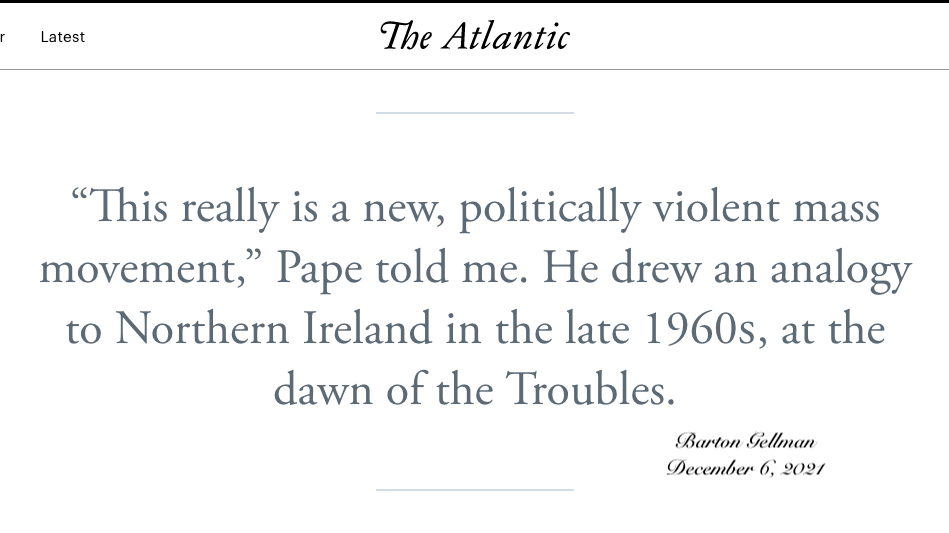
Another warning sign of impending disaster is the level of “preliminary work” done to set the stage for this movement. But don’t think for a minute this is a grassroots effort. The preliminary work was done exactly as outlined by Eric Hoffer in “The True Believer: Thoughts on the Nature of Mass Movements” (1951) except this movement is sponsored by an elite ruling-class of millionaires and global billionaires—the same ones infecting the heart of our government.
We have to do more than “look under the surface.” But our actions must be guided by the Founding Fathers’ political principles and the institutional goals as designed to protection this republic. We owe it to the republic to avoid falling for authoritarian or totalitarian rule.
But The Disease Will Continue Spreading, For Now
Frustrated by politics, citizens will consume snake-oil if they think it will give them a voice in governing. But what many fail to see is how their emotions leave them susceptible to propaganda. Therefore, what Hoffer called “men of words” are who we need to put under a microscope.
Propagandists targeted — continue targeting — our leadership, institutions, and ethical journalism.
“Mass movements do not usually rise until the prevailing order has been discredited.”
“The discrediting is … [done by] … the deliberate work of men of words … the man of words undermines the established institutions, discredits those in power, weakens prevailing beliefs and loyalties, and sets the stage for the rise of a mass movement.” (p130-131)
Every citizen needs reliable, relevant, unbiased, easy to access information. We owe it to our “Posterity” to renew and strengthen the institutions capable of serving in that endeavor.
Stop the Bleeding While We Administer A Cure
Immediately, we need to demand better information from our institutions, cleaner legislation, and laws ensuring balanced, ethical news sources. Our government owes us that. In turn, we need to become better consumers of news and help others do the same.
Six questions that will tell you what media to trust By Tom Rosenstiel October 22, 2013 (Summary of Six questions that will tell you what media to trust)
And no matter what happens tomorrow, we must protect our educators, librarians, journalists and other writers.
“It is the writer’s duty, Madeleine L’Engle argues, to continue reclaiming complex ideas from the grip of simplistic taboo…”
“The first people a dictator puts in jail after a coup are the writers, the teachers, the librarians — because these people are dangerous. They have enough vocabulary to recognize injustice and to speak out loudly about it.” From Dare to Disturb the Universe (The Marginalian)
Do We Have A Cure?
Our political and social disorder syndrome manifested itself with these symptoms.
“… a corrupt political class, a sclerotic bureaucracy, a heartless economy, a divided and distracted public.”
But, can we attribute all the symptoms to a single disease process? Well, in this nation of laws, the legislative branch is the heart of the republic. So consider this:
“There’s always been corruption in Washington, and everywhere that power can be found, but it became institutionalized starting in the late 1970s and early ’80s, with the rise of the lobbying industry.”
Source: The [Former] President Is Winning His War on American Institutions April 2020
We owe it to the country to understand the reasoning behind the design of the American “federal republic”. Understanding the principles and institutions this republic depends upon for survival Is crucial. Otherwise, she dies.
“It is profoundly dangerous when a politician takes a step to undercut or ignore a political norm, it’s extremely dangerous whenever anyone introduces violent rhetoric or actual violence into a republican system that’s designed to promote compromise and consensus building.”
“The solution to keeping a republic healthy, if Rome can truly be a guide, is for the citizens to reject any attempts to alter these norms … [Edward Watts] …” SmithsonianMag
We have to demand a return of function to the heart of the republic.
We owe it to the nation — our United States of America — to make the effort to save her.
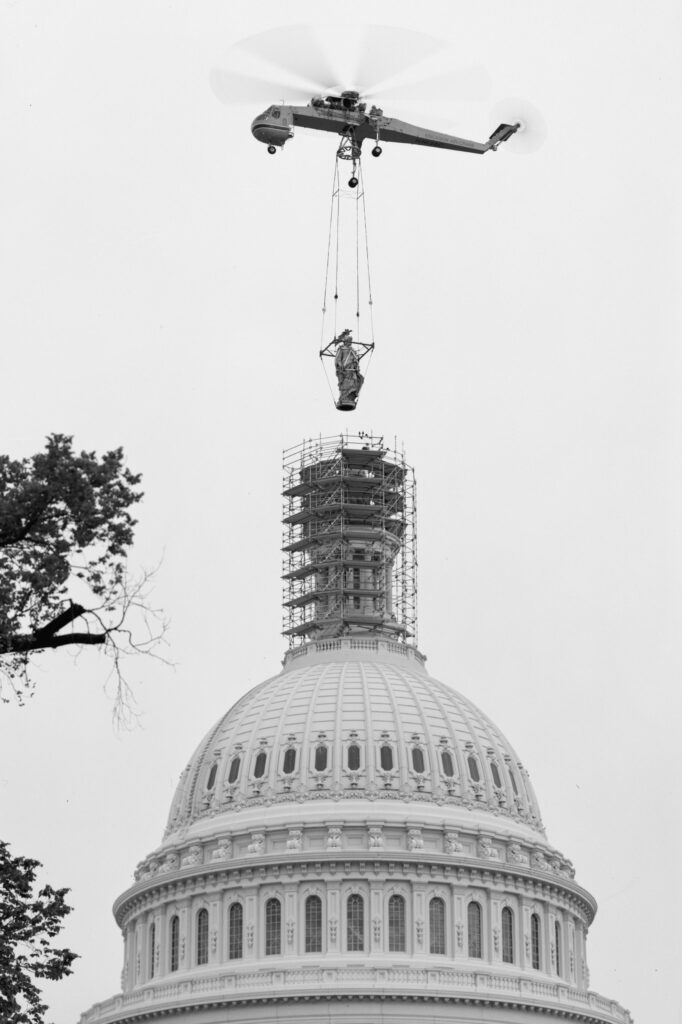
Her dome has been maintained and restored. The proper functioning to the institution upon which she stands has not.

